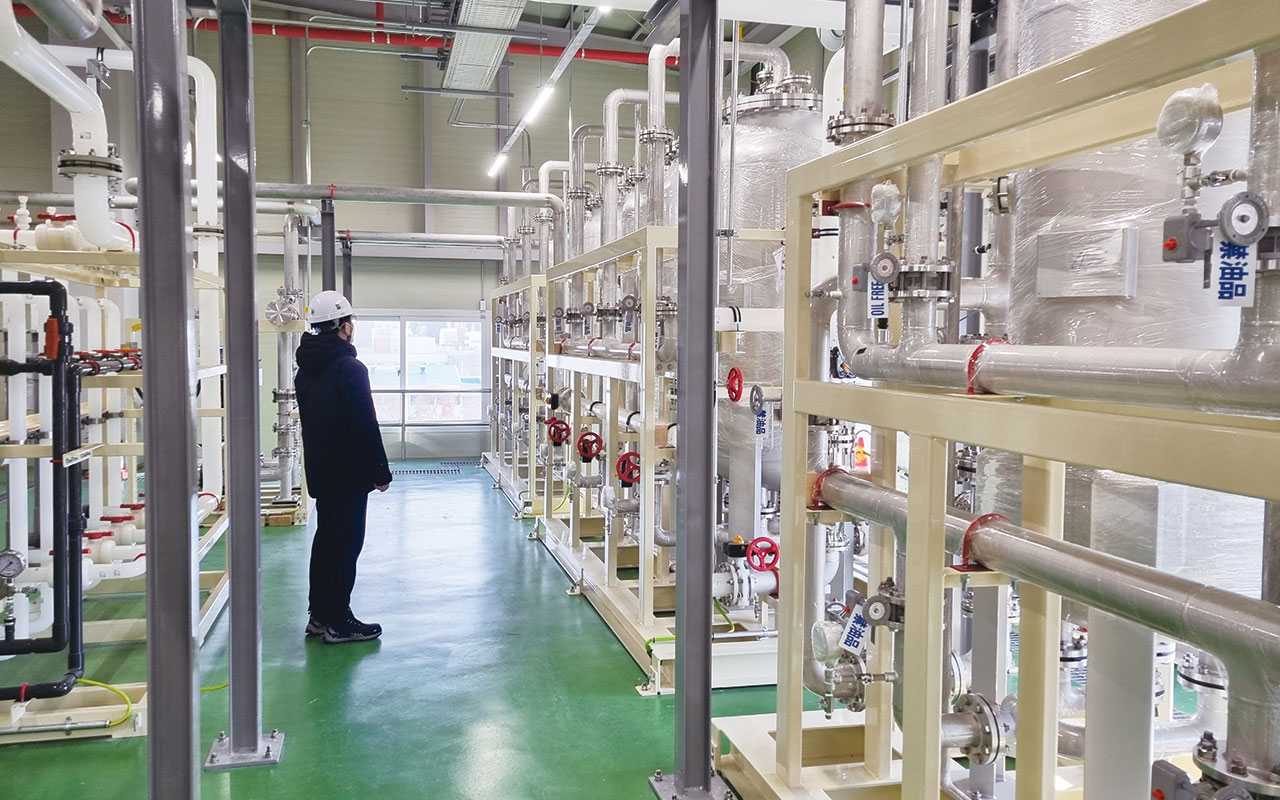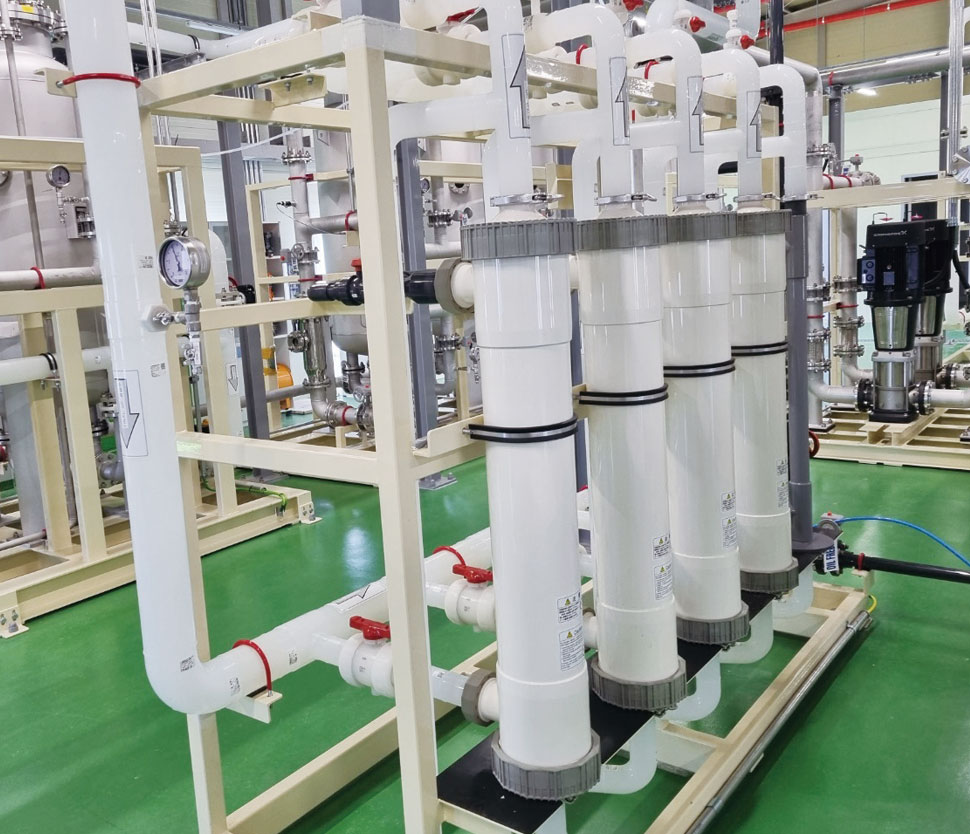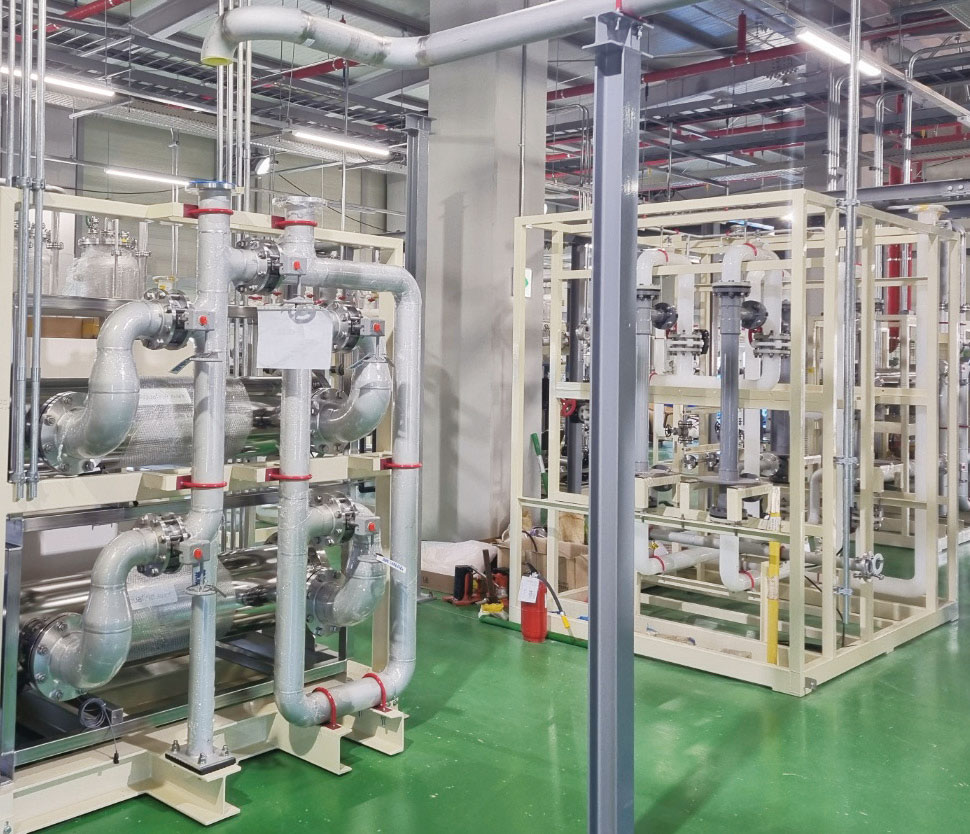-
 2023. March VOL. 660
2023. March VOL. 660
 Ion exchange process
Ion exchange process
On February 1, 2023, Environment Minister Wha-jin Han visited the UPW R&D center(the second Gumi Factory of SK Siltron located in Gumi), Gyeongsangbuk-do Province to assess how the R&D of UPW is proceeding. The purpose of the visit was to see how far the UPW technology development as ‘the water of life’ for semiconductors, for which S. Korea has been dependent on other countries, has advanced forward and to encourage the growth and exports of the water industry.
Ultra-pure water(UPW) is used to remove various types of contaminants in the semiconductor manufacturing process. It is water that has been purified to the highest purity level, close to 100%, by perfectly removing electrolytes, microorganisms, and fine particles. It is an essential material required for manufacturing semiconductors. The global UPW market is forecast to expand from KRW 19.5 trillion in 2020 to KRW 23.4 trillion in 2024. Although S. Korea is a global ‘semiconductor powerhouse’, it has depended on the U.S., Japan and other countries for UPW. To secure a stable UPW supply, the Ministry of Environment has been encouraging domestic UPW production since 2021 in a bid to help Korean semiconductor manufactures create a super gap or unrivaled leadership in the global semiconductor industry and to further enhance economic security.
 UF for UPW
UF for UPW
 Ultraviolet ray oxidation process
Ultraviolet ray oxidation process
The Ministry of Environment plans to invest KRW 44.3 billion by 2025 in the development of technologies required to design, build and operate UPW production facilities as well as three types of core equipment*.
K-water has been recognized for its capability of locally producing UPW, and thus was selected as a research organization for ‘the Ministry of Environment’s project for the development of high-purity industrial water’ in June 2021. Under the project, K-water is working with 21 private corporations on indigenous production of UPW.
K-water began construction of a UPW demonstration plant in a SK Siltron factory in Gumi, Gyeongsanbuk-do Province in November 2021, and the construction project will proceed in two phases. In the first phase, a UPW production facility with a production capacity of 2,400 tons per day will be constructed, using imported equipment, while the second phase will involve only domestically produced equipment. The first-phase facility which was designed and constructed with indigenously made technology has been test-operated since last year. Once the water produced during the test operation phase passes the quality test, it will be supplied to SK Siltron, which will then start wafer production.
The second phase using only domestic equipment will be finished by the end of this year with plans to domestically develop 100% design and operation technologies required for ultra-purity industrial water production in addition to 70% construction technology and core apparatuses by 2025.
In addition, the project includes the creation of both on and offline platform centers by 2030 where the public and private sectors can work together to achieve UPW technology self-sufficiency, train UPW specialists, and develop the domestic UPW industry and technology.
Minister Han was cited as saying, “S. Korea has depended on the U.S., Japan and a few other countries for UPW and domestic UPW production is one of the most urgent tasks to ensure that Korea’s semiconductor industry competitively outperforms globally,” and added, “The Government will do its best to help the Korean water industry create new added values and expand its business globally by succeeding in domestically producing UPW and raising the industry standards in all aspects.”
* MDG(mebraine DeGassing)(removal of dissolved oxygen), ultra-violet oxidation equipment(removal of organic matters), ion exchange resin(removal of metal ions)
 “The Government will do its best to help Korean water industry create new added values and expand its business globally by succeeding in domestically producing UPW and raising the industry standards in all aspects.”
“The Government will do its best to help Korean water industry create new added values and expand its business globally by succeeding in domestically producing UPW and raising the industry standards in all aspects.”
